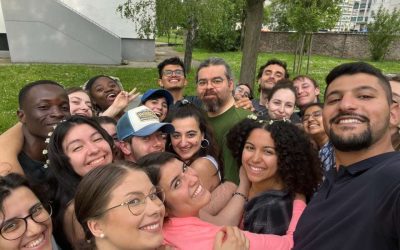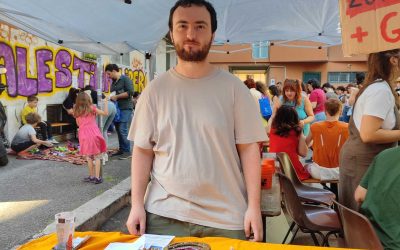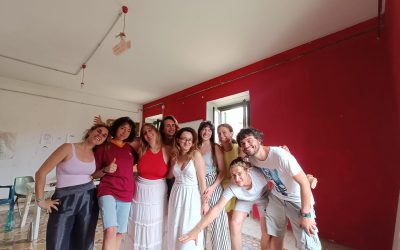Environment
Winter peace in Kuterevo
The project took place in:
Croatia
Workcamp
Written by Nelly Naydenova
For the SCI movement and its followers 2014 is the year of climate justice. One element of the Create a Climate for peace campaign was the youth exchange ‘Winter Peace’ in Kuterevo at the very beginning of the year (5 to 15 January).
The project aimed to introduce and discuss different yet strongly related topics such as peace, nature, activism, sustainable lifestyle, etc. Within just 10 days 25 young people from 5 different countries (Croatia, Hungary, Bulgaria, Germany and Latvia) discussed various topics connected to the changes that are happening to us, our society and environment and what we can do to bring a positive change. We were different people with different personal histories to tell and experiences to share. What united us was the diversity and our desire to make things work for the better.
Where?
The project took part in Kuterevo – a small village within the Velebit mountain ranges. The Velebit area is one of the last remaining wilderness areas in Europe. Kuterevo is small and traditional place, isolated in the mountains where local communities are living sustainably and in harmony with nature. At first glance it may seem that Kuterevo is a peaceful spot, quite far from all the hustle and tussle of the city. As a matter of fact our experience there was a perfect illustration of what is happening now in the world today. The reason for this is that, no matter whether you are a climate change skeptic or believe that humans are to blame for global warming, the simple fact is that changes are happening and they are affecting even remote areas like Kuterevo. We were prepared for harsh, winter conditions in the mountains as it is supposed to be in January. But when we went there we found “nice”, spring-like weather. So we tucked away our winter jackets in our backpacks and took out our short sleeve shirts. Whether this was good or bad, natural or just the whim of the weather it’s hard to tell, only the future can tell. What is clear, however, is that it is affecting the life of the local community and the wildlife in the area. Because of the warm weather the bears at the Bear Refugee Center were also out and playing on the sun. Although this is not so unusual for the Kuterevo bears, it made us wander what is happening with the other bears out there in the wild that are supposed to be hibernating, giving birth to their cubs and sleeping etc . How are changes affecting life in the villages, what do they do?
What did we do?
What we did was different artistic and creative projects that aimed to provoke other volunteers, visitors or just random people to think more about what they do, how they live, etc. One of the projects was to document the changes – climate, cultural – that people notice in the village. “KUTEchangeREVO” group created a photo essay of how people from the village see climate change, how it affects their way of life and what it might tell us about their future. What we also did was a short video to remind all the volunteers and activists of their ecological footprint. One of the highlights of the video was also to remind us to take it slow, enjoy the ride because it is the act of travelling and discovering new things, people and places that is important, not the final destination. In this fast-pace world we are rarely given some time off so travelling back and forth with trains and buses may be the perfect excuse to reflect on all the important stuff that we are usually too busy to give it thought to and communicate.
What have we learnt?
Because of our disconnection with the outside world we also managed to reconnect with ourselves, with the other participants and people from the village and of course with nature. We took take time to prepare our meals, clean, live, learn, sing, hike, share and of course help each other out.
What we, as a group, found out at the end of our stay in Kuterevo is that the choices we make today (no matter how big or small) can have repercussions tomorrow. Moreover, our everyday choices may not only impact us and the place where we live but they could also have a long-lasting impact on nature and future generations. Therefore, those 10 days encouraged us to start making more well-informed and conscious decisions in our everyday lives. It might be something trivial as the first morning coffee. As negligible as it might seem our morning coffee could be helping sustainable agriculture and local communities or on the contrary it could be helping deforestation, loss of biodiversity and indigenous communities. Or it can be something big. We can join efforts and participate in activities that could make us and others think about their environmental footprint on the planet.
Written by Nelly Naydenova, Kuterevo, Croatia(2014)
You can still join!
Want to have your own volunteer experience for peace?
Read more Voices of Volunteers




